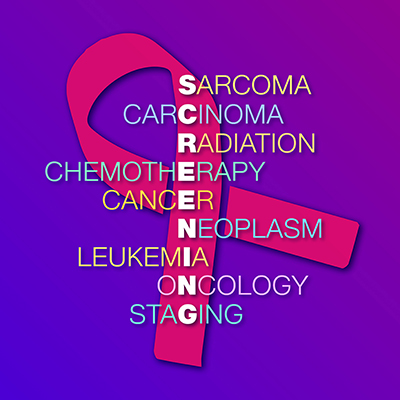India has a high load of communicable diseases already. Add to that the Covid-19 cases over the last two years.
[the_ad id=”13371″]
It is kind of obvious that the prevention of non-communicable diseases generally takes a back foot in India and more so in the pandemic period.
The major non-communicable diseases in India are diabetes mellitus, heart diseases, stroke and many types of cancer. Worldwide, non-communicable diseases (NCDs) account for 71% of total deaths, whereas in India it is estimated at 63%, of which cancer is one of the leading causes at 9%.
Some known risk factors of these diseases are tobacco, dietary habits, inadequate physical activity and alcohol consumption. In a country that already had a large prevalence of these risk factors, urbanization has added its burden.
Magnitude of the problem
The real numbers of prevalence can only be studied back in time (retrospectively). Therefore, projected numbers are important in non-communicable diseases. Following are the projected incidence of patients with cancer in India for the year 2020:
Male: 679,421 (94.1 per 100,000)
Female: 712,758 (103.6 per 100,000)
During their lifetime of 0-74 years of age, one in 68 males (lung cancer), 1 in 29 females (breast cancer), and 1 in 9 Indians will develop some cancer. The 5 most common cancers for males are lung, mouth, prostate, tongue, and stomach, based on the projection. These 5 constitute 36% of all cancers in men. As for the females the top ones are breast, cervix uteri, ovary, corpus uteri, and lung, which constitute 53% of all cancers in them.
Preventable factors:
Studies have proven that 70-90% of all cancers are environmental. Among environmental exposures, lifestyle-related factors are the more important. About 35 to 50% of all cancers sites in men are associated with tobacco (either chewing or smoking or both), whereas the number is at around 17% in women.
About 20-30% of cancers are linked to dietary habits, reproductive and sexual practices etc. There is some relationship of most cancers with diet. Predominantly, cancers of the upper digestive tract like mouth, throat, oesophagus, stomach and large intestine along with lung and breast cancer are associated with diet.
Alcohol is known to be a risk factor for cancers of head and neck.
What should be done?
Lifestyle changes in an appropriate manner can reduce the death rates and disease burden. It can not only reduce a good proportion of cancer, but other conditions like diabetes, heart diseases and stroke as well. Let’s have a look at the preventive measures one by one:
- Tobacco: Quit at the first opportunity. Get help to quit, seek a support system that will help you remain tobacco-free
- Alcohol: Quit completely or go low on your alcohol consumption.
- Diet: Plant-based diet is associated with a lower incidence of cancer. Reduce non-vegetarian food or at least increase fibre intake whenever you consume animal-based proteins. Fibre in the diet is crucial to the health of the digestive tract. A diet that is rich in yellow and green veggies is shown to reduce the risk of oral cancers. Avoid consumption of large amounts of red chillies, alcohol, and food at very high temperatures as these are the main risk factors for stomach cancers in India. High fat diet should be avoided.
- Exercise: Low physical activity is associated with many cancers, especially breast cancer. Moderate exercise only once in a week reduces lung cancer by 21%, whereas rigorous exercise once a week reduces the likelihood by 29%. The benefits of exercising daily are immense. A diet that is largely plant-based coupled with moderate exercise does go far in terms of longevity and good health.
- Sexual and reproductive practices: Late age at first pregnancy (more than 30), single child, late age at menopause etc are risk factors for breast cancer. Breastfeeding the baby is protective against breast cancer. Risk factors of cervical cancer include: early age at first intercourse, poor sexual hygiene, multiple sexual partners, repeated child birth etc. A simple test called pap smear can detect cervical cancer. The best part of pap smear is that it can detect precancer stages too. The test is cheap and is available with every gynecologist in a public or private hospital. HPV vaccine is available and is to be administered to teenager (especially girls) before they become sexually active. We need more awareness around the vaccine in India.
Screening:
Early detection is the key to good survival rates and good quality of life post cancer.
Getting medical help to start screening early is crucial. Proactive attitude towards screening is what people in India need.
Apart from your doctor helping you with the screening, here are some other tips to follow:
- Regular self-examination of breasts for women.
- Regular self-examination of testes for men, especially young men.
- Use of condoms every time one is sexually active with a new partner.
- Keeping a track of cancer history in family and extended family helps immensely.
- Never ignore any growth, lump or bump anywhere on your body, painful or painless.
- Even though it sounds gross, every once in a while check if there are any changes in your bowel movements.
- Watch out and eliminate factors that can cause cancer (carcinogens) which are present around you or in your food, such as household/industrial smoke, asbestos, MSG (Ajinomoto) etc.
- Some cancers have practically no alarming signs. Never ignore any symptom that is persistent and seek immediate medical help. (For example: ovarian cancer in young girls can have no other symptom than bloating and/or a dull pelvic pain. Unfortunately, it is a very fast-growing cancer and early diagnosis is the only life-saving intervention).
- Annual lab tests: People should utilize their medical insurance for preventive checks. It is always better to know what is going on in your body. There are so many cases of leukemia being diagnosed with a casual blood check. Prostate cancer hints can be obtained with a simple blood test. Likewise, simple stool tests for occult blood can provide cues for colon cancer. Again, early diagnosis immensely changes the dynamics of cancer treatment.
While there are no approved guidelines for screening in India, here are some screening timelines in a nutshell (individual requirements may vary):
- First mammogram at 40 or earlier. Repeat every year in case of family history of breast cancer. Otherwise, repeat once in two years.
- The first Pap test is recommended within 3 years of becoming sexually active or at the age of 21 – whichever is later. Frequency of repeating as suggested by the gynecologist, depending on the results.
- Lung cancer screening with CT scan for smokers and former smokers with a history of heavy smoking typically at the age of 55-74.
- Prostate cancer screening can begin at 45 years of age, in high-risk men and at 50 years for others.
- Colon cancer screening with a colonoscopy can be started at 45 years of age.
This World Cancer Day, let’s pledge to get ourselves and our loved ones screened, because early detection is the best protection!
Source:

Dr. Mamta Lele- Pawara
(MD Ayurveda-Internal Medicine, CRAV-Kayachikitsa, MA Sanskrit)
